TBILISI, DFWatch – Georgia expert Lincoln Mitchell sees several possible outcomes of the election, and explained to us his assessment of the situation.
DFWatch: Your prognosis, your predictions about these elections, its outcomes are interesting.Lincoln Mitchell: Well, we don’t know for sure what’s going to happen. We still have about two and a half weeks and obviously we have to see what happens and of course on election day people will have to vote and then, with luck, lots of those votes will be counted, but we don’t know that. We don’t know how well that will all go. I think there is a range of possible outcomes here. One possible outcome is that there is reasonably widespread fraud and the government claims to win 65-75 or more percent of the seats. I think if that happens, it will be a very difficult situation for Georgia. There are enough people in the Georgian electorate, who will feel that their votes have been stolen; that their voices haven’t been heard and that will create real problems for Georgia.
Another scenario is that the election runs very smoothly and that Georgian Dream either wins or its a very, very close election, and gets enough seats to take over the parliament, or narrowly loses. I think that’s unlikely. I don’t think that the climate here is such, that we’re moving towards that kind of freedom and fairness on election day.
A third option is that the election goes a little better. The Georgian government begins to hear the messages that are being communicated from the United States, from other places, from the Europeans, and they realize that widespread election fraud is gonna create a lot of problems for them, widespread voter intimidation, widespread problems with the counting, and ease up a little bit, and we get a parliament which is competitive although perhaps still a majority for the government, perhaps due to election fraud, but not a lot of it. The second of the two is the hopeful scenario, the first is a bad scenario. If either of the second two scenarios occur we then move into another difficult phase, which is a parliament where power is shared and maybe the Georgian Dream has a slight majority or is in a slight minority or maybe they only have 40-ish percent of the seats, but in either case, a government where power needs to be shared and where all voices for the representatives of all the Georgian people need to be involved in policy making. That’s seems to me to be the best outcome for Georgia, both in regards to its own democratic development and also to get into better policies, so that some of the issues that we’ve seen come up in this campaign — poverty, agricultural problems, things like that — are actually addressed. But without a competitive parliament I don’t think that’s gonna happen.
DFW: Those last two scenarios are very good but many people here think that the most likely scenario is the first.LM: I would probably agree. You asked me to make predictions.. But I don’t want to say it’s a guarantee. First of all I don’t want to discourage Georgian people. I think that everyone should continue campaigning and I think everyone should go and vote on Election Day. And if you think: “Oh, the election is stolen and there’s nothing I can do”, you’re not gonna vote, and that becomes a self-fulfilling prophecy. And the enemies of democracy, all over the world, they want people to say “Ah, there’s nothing I can do”. If people start saying that, then democracy loses. So I don’t want to discourage people too much. On balance, I am aware and afraid that the first scenario is the most likely; that an unfair election climate continues into election day and perhaps beyond election day, and the result is a parliament that is tilted very heavily towards the government to the point where the Georgian people holler ‘foul’ and believe it’s wrong, and at that point, who knows what’s going to happen.
DFW: There is hysteria about these ratings, polling. Two days ago German polling organization published its results; most popular in the good sense or bad sense are these ratings and polling of IRI and especially NDI last time. NDI put 12 percent to Georgian Dream and about 37 to the ruling party and many people are undecided or refused to give answers. Many people here think that it was like a message especially for the outside world and if the election is rigged and opposition gets 12 percent it would be justified by these ratings.LM: I’m more familiar with NDI’s polls than IRI’s poll, because it’s more recent and I’ve read the Power Point presentation just the other day, so I think I’ll speak more to NDI’s work here. It is being perceived as a message and it is being used. The Georgian government is running around with this poll all over Washington. Let me be specific. The lobbyists hired by the Georgian government to do partisan political work overseas are running around with this poll and representatives of Georgian government who are supposed to be serving all the interest of all people in Georgia are running around with this poll showing ‘aha, look we’re gonna win.’ So it is being used in that way, and it is being used as a message. Now was it intended as a message by NDI? I don’t know. You’d have to ask Luis Navarro or the leadership of NDI that question. It’s certainly comes off that way. Now, the question I would raise is that if NDI is in the business of democracy work, they know these people are smart. I worked on NDI. These are smart, sharp people. They know how this is gonna be used. So why do it in the first place? It’s not helping democracy in Georgia. It’s helping, contributing to the polarization that they believe is such a serious problem. By the way, paranthetically, all of the international observers in recent weeks have addressed this issue of polarization. I live in a country with tremendous political polarization; democratic country but still with great deal of political polarization. In polarized societies, 43 percent of people aren’t undecided, right? That is evidence that it is not polarized. There is a huge middle that hasn’t made up his mind. Now, I think that number is wrong, that 43 percent. But you can’t have it both ways. You can’t say it’s highly polarized and 43 percent are undecided, whatever that number is, that 43 stuck in my head. That doesn’t make sense. I don’t want to dwell on the NDI poll for too long, because I think NDI has over the years done some great work in Georgia, I don’t get this polling strategy but you should talk to NDI about that. I will say this, as somebody who has worked on political campaigns in the United States, someone who has been, let’s just say, observed a lot of political campaigns in Georgia and been involved in other countries and advised in other countries: if you are at a 37 percent rating plus another two percent of leaners, according to NDI polls, let’s round it up to 40 with four weeks to go; after you’ve been in powers eight years, you are in a very bad shape. That is the takeaway from the Georgian, that is what a smart political consultant.. I’m not a political consultant, but I have friends who are, that’s what a smart pollster, smart political analyst would take away. Not that they are winning with 25 points, but my goodness, after eight years only 40 percent are supporting you, you are in trouble. That’s the takeaway, and I’m surprised that fewer analysts haven’t run with that, ’cause that’s the bottom line. Now you can chop up as some pollsters have done and say, well it’s magically going to fall this way or that way. I wouldn’t do that in a country like Georgia. I won’t do that for a country like US if you have a good question, methodology and I believe that the local forums that collaborate with the NDI, they know what they’re doing. They know the questions they’re asking and I give them credit for marking them as ‘undecided’, rather then some magical formula, that no one’s really going to understand, but that should be as a takeaway, not the margin of the 40 percent.
DFW: Another field of competition between for these two forces, opposition, government is lobbying. Many people think that Saakashvili won this lobbying war in the US and is likely to win in Europe too. What’s going on in the US?LM: There’s very interesting lobbying effort, because on the one side you have this billionaire, very wealthy man, who has hired lobbyists and PR consultants in Europe and the United States to get his message out, to represent his views. Now you might say wow that’s a lot of money and frankly that is a lot of money, but you might also say, you know what, in democratic societies people have the right to spend their money, right? So what he is doing into my view it’s more money than I have or in some respects, that I can imagine, but it’s kosher. Then you have on the other side the Georgian government is taking tax payer dollars, some of which are foreign tax payer dollars, ’cause they get so much foreign assistance, to lobby for partisan efforts, right? So the Georgian government using American tax payer dollars, to lobby the American congress to support the Georgian political party that runs the country. So that to me crosses a different line. Having said that, you can say whoever wins the election is gonna win the lobbying effort, so we don’t know yet. But on the other hand there is a real change in Washington. The Georgians’ assertions of “we are a democracy” and “everything’s fine here” – that no longer flies. There is real push-back from leadership in Washington, from both branches. And I’m not saying that everyone is captured by lobbyists, that someone just says so because the lobbyist told them, but there is a different climate in Washington and there has been an enormous effort by public relations people hired by Ivanishvili to change that climate. So I would submit that there’s gotta be some relationship there. So I think the American position has changed. I think the position was evolving anyway, because the Obama administration, pardon me for saying, was a bit smarter than it’s predecessor, a little more sophisticated, a little more smarter than its predecessor, so the position was changing anyway and whether that gets credited to lobbyists or just a growing evolution on the part of the Obama administration, you know that’s something we have to figure out after the election, that’s going to be in the post mortem on the election. So I would hesitate to say that one side has won the lobbying war. Europe I’m less familiar with, but from the media I’m seeing, from people sending me things from Facebook and Twitter and places like that. I think it’s a reasonably close situation. Europe a year ago was more open to understanding the shortcomings of democracy in Georgia. The United States was not, so you see more change in the US because it was more need for change.
DFW: What about this recent visits of Senator McCain and Lieberman and Lindsay Graham. It was presented before the visit by televisions that it was support for Saakashvili. They met with Saakashvili’s opponents, they talked. So it is thought that it was support of Saakashvili. What is your opinion?LM: Well again I most what I know about the trip is from online reports and that kind of thing. I think that if you were a Saakashvili campaign consultant or something and this trip happened you would be disappointed. This was very different in tone from previous trips by John McCain and I think in a statement when they were leaving they made clear that, who knows what they’re going to actually do, but they drew more attention to the issue of election fairness, than they would have if it was really a campaign trip. Otherwise they would have come and say – Saakashvili my close friend, he is doing great work – they didn’t say those things the way they usually do. They drew attention to the urgency of having fair elections in Georgia. Whether they’re going to back that up if there are problems on election day, I don’t know, you have to ask them.
I think it is also important to know that when visitors of the American government come whether it is Tom Melia or John Lieberman or Hillary Clinton or, you know, high level people, and the other three senators, not just Senator Lieberman, these are people, particularly the senators, who have a long relationship with Georgia and they care about Georgia. And certainly the State Department, the Obama administration cares about Georgia and they want to make.. you have to listen closely. Their statements are statements that are supportive of Georgia as a state, supportive of the interests and goals that we, the US government and the Georgian people share – the ability to stand up to Russian aggression, moving towards integration into Western organizations NATO, EU. The people who share this, they want to express solidarity with the Georgian people, with the Georgian aspirations without taking a position. In the past I think they have taken positions and now they’re trying to move away from local politics. And I think for a lot of Georgian ears, they’re so used to equating that if you are pro-Georgia you must be pro-Misha – that’s no longer true in the United States. John McCain, I mean look at the man’s records, I’m not a fan, I campaigned against him for president, but John McCain has clearly staked out a position where he is supportive of Georgia. That’s pretty obvious, and I think if you’ve asked him he would tell you that, but he is moving away from position, while he is blindly supportive of Saakashvili that’s what I thought was important about his recent trip, and I would say the same about his fellow senators on that trip.
Anyway it’s a fact that approach towards Georgia is quite different between republicans and Democrats. Very interesting what do you think about election in the USA?LM: [U.S. Republican presidential candidate Mitt] Romney doesn’t know anything about foreign policy and I don’t think he is going to be president. Nevertheless, what Romney has said is that Russia is the biggest threat to the United States. That’s a strange statement. It’s a strange statement for a country that eleven years ago was attacked by terrorists and has spent the last eleven years combating them. Any American or 95 percent of the Americans will tell you that Russia is not the biggest threat to our country. We were very concerned about Iran and nuclear weapons and things like that, so Romney would clearly bring a more hawkish and knee-jerk anti-Russian position, whereas the Obama administration has been very good at achieving American goals on Russia without creating rhetorical fights with Russia. I think that ideologically the differences are not so much ideological they are about approach. So the Obama administration is more interested in outcomes and the Bush administration, what it looks like what Romney would do, is more is more interested in rhetoric. I prefer outcomes to rhetoric, but that’s my view. With regards to Georgia I think it is possible that a Romney administration would take Georgia back to where we were in the Bush administration, very kinda black and white view of Georgia, not interested in democracy, very taken in by Saakashvili, ’cause you know he is young and he speaks English and he says all the right things about Russia. That will be very damaging for Georgia, because to endulge the non-democratic tendencies of the Saakashvili regime to give them back the green light I don’t think that’s a good idea for Georgia. The Obama administration, we’ll see. Remember we have an election five weeks after your election. I watch the polls closely. Evidence suggest that the president will be reelected. Now again we have to vote, but we don’t know what’s gonna happen on Election Day, there’s a lot going on. Clearly the administration wants to keep things they want to go well here in October, so they don’t have a problem here as the election approaches. If Obama gets reelected, which is the likelyhood right now, that raises some interesting questions for the U.S.-Georgia relationship, because the U.S.-Georgia relationship has been strong before Saakashvili was president and before Obama was president and it will remain strong after both these guys have left the stage, but an Obama second term presidency may feel more empowered to push Georgia a little harder on democracy issues; to push Georgia a little harder to calm down rhetoric that is sometimes not helpful for anybody in the region and we’ll feel less in need to let to be uncritical of the Georgian government. I think on balance that’s good for the Georgian people. We’ll see.
DFW: There are many scenarios what will Misha do after his term expires. We asked you by Skype the previous time about what would America’s reaction be if he becomes Prime Minister, but there is feeling here that it’s not very likely scenario that Misha be Prime Minister. Not Excluded. Another Scenario is Misha somehow hold power in the National Movement party, it would be ruling party and they impose someone as a president, puppet president and someone Prime Minister, for example. What is your opinion about these scenarios?LM: Since Merabishvili has taken over as Prime Minister the noise the rumors that Saakashvili wants to become a Prime Minister have receded. However he has still not issued a Shermanesque denial. Now I think it is easy to imagine a scenario where if this election .. I would say there are three scenarios. One is, they get 65-70 percent of the seats, there are some problems after the election but it recedes, in that case if that happens he might feel confident enough to to move into the background and have informal power that allows him to control the party. Because if he really disappears the party is prone to its own factionalism. He plays a key role in holding them together.
A second scenario is if things go badly after election, but he stays in power through clamping down on the opposition, he’s gonna find a way to make sure he’s personally in power, ’cause he cannot afford having informal power. That can be changing the constitution, going back to the prime ministership.
The Third scenario is, if it is a truly competitive parliament with neither side having more than high 50 percent of the seats. If that happens then you’re gonna have a real presidential election and somebody could win from either party, but it’s gonna be someone who is constitiutionally eligible, which means it’s not gonna be Saakashvili and you gonna have a harder time fixing that election if it’s a competitive parliament. If that happens I think he’s gonna move on.
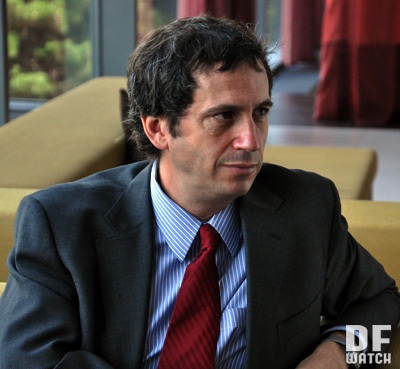

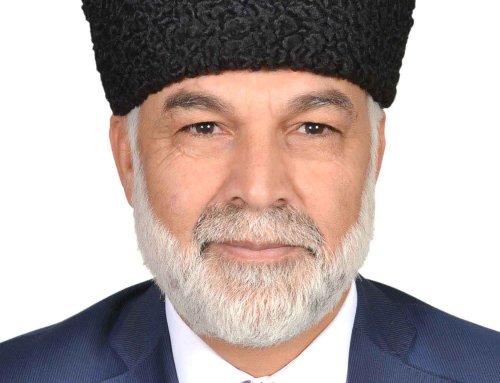
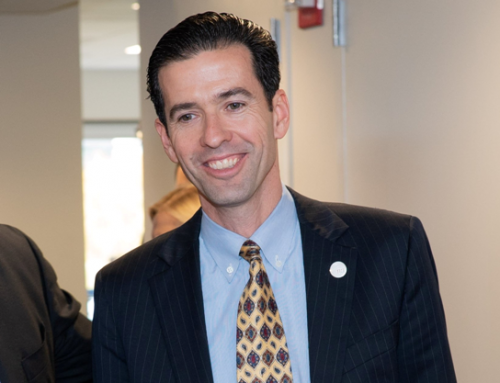
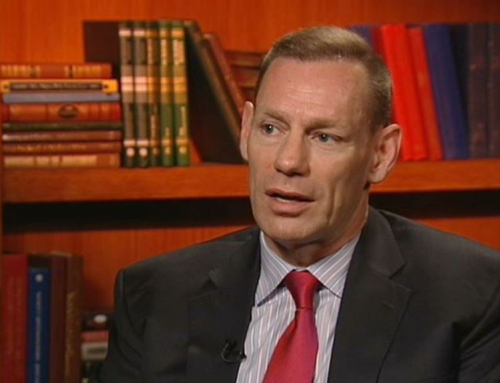
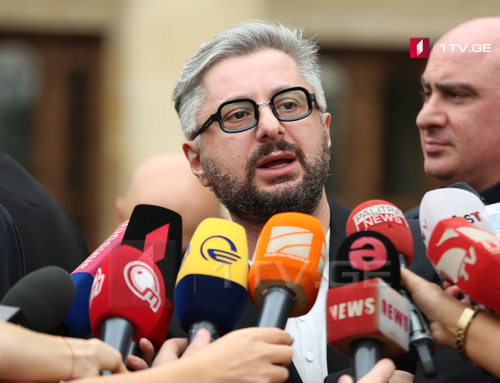
Leave A Comment
You must be logged in to post a comment.